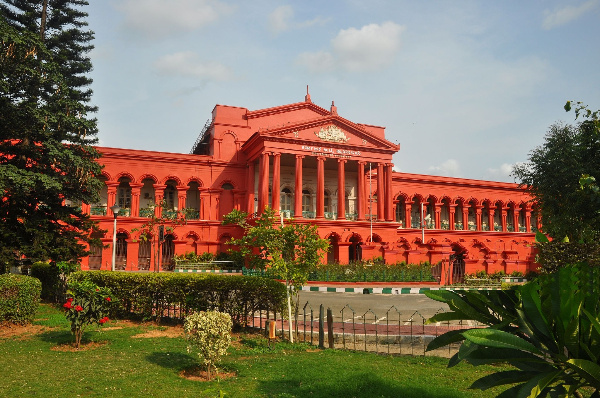The Karnataka High Court stated that Section 35A of the Banking Regulation Act does not allow any bank to select the investigating agency for probes in a specific state.

The Karnataka High Court ruled that Section 35A of the Banking Regulation Act, 1949 (BRA) does not allow any bank to select the investigating agency for cases in a specific State. This decision came from a Writ Petition by the Union Bank of India, which requested that the investigation of a crime under various sections of the Indian Penal Code (IPC) be handed over to the Central Bureau of Investigation (CBI). Justice M. Nagaprasanna, in a Single Bench, noted that the State Government registered a crime based on a complaint, involving certain banking officials who were later excluded from the charge sheet. The Court stated that Section 35A does not grant banks the authority to choose the investigating agency, as doing so would undermine the law. It emphasized that the CBI can only operate in a State under the DSPE Act or if directed by the Supreme Court or the High Court.
The Bench also highlighted that when high-ranking officials are implicated in allegations, the investigations should be assigned to independent agencies not controlled by the State Government. This approach would enhance public trust and credibility in the investigation. The Petitioner was represented by Attorney General R. Venkataramani and Senior Advocates Kiran S. Javali and Vibha Dama Makhija, while the Respondents were represented by Special Public Prosecutor B.V. Acharya and Senior Advocate Ravi Varma Kumar.
The Karnataka Maharshi Valmiki Scheduled Tribes Development Corporation Limited, which is a government entity in Karnataka, had a Savings Bank account at a Union Bank of India branch. The Corporation asked the bank to move this account to a different branch. The bank complied with this request, and after the transfer, the Corporation provided signatures for banking activities, allowing the Managing Director and the Accounts Officer to manage the account separately. It was claimed that Rs. 94,73,08,500/- was wrongfully distributed to various accounts by the branch using forged documents, including an authorization letter from a Junior Accounts Officer of the Corporation. As a result, the State Government filed a crime report under relevant IPC sections.
The CBI then filed an FIR for offenses under Sections 120-B, 409, 420, 467, and 468 of the IPC, along with Sections 13(2) and 31(1)(a) of the Prevention of Corruption Act, 1988. Both the State Government and the CBI conducted separate investigations. During this period, the Petitioner made a request to the Additional Chief Secretary of the Home Government, referring to the complaints filed by both the CBI and the State, and asked for the case to be handed over to the CBI for an unbiased investigation. Following this, a Writ Petition was submitted to the High Court.
The High Court, considering the details of the case, stated, “The petitioner raises concerns about the misappropriation of several crores from the Corporation’s funds. This reflects a troubling situation in the State. M/s Karnataka Maharshi Valmiki Scheduled Tribes Development Corporation Limited was established on 26-07-2006 to provide financial and technical support to members of the Scheduled Tribe community in Karnataka, aiming to improve their economic conditions, assist unemployed individuals, and support agricultural workers from these communities.”
The Court emphasized that the funds meant for scheduled tribes should be handled with utmost care and expressed its dismay that these funds are involved in a scam. “It is noted that a current member of the Legislative Assembly and some high-ranking officials are reportedly linked to the misappropriation of these funds. … If Section 35A allows any banking institution to transfer investigations to the CBI, it would grant powers that the law does not provide,” it remarked. The Court clarified that while it can refer matters to an independent investigative agency under Article 226 of the Constitution and Section 482 of the Criminal Procedure Code (CrPC), this cannot apply to cases concerning the interpretation of Section 35A. If the situation were different, the Court would have considered the matter further.
Section 35A gives the RBI the authority to supervise and control banking institutions. The fact that some officers from the Union Bank of India are accused during the crime registration process, and that the bank has contacted the CBI as required by law, does not lead this Court to accept an exaggerated interpretation of Section 35A. Therefore, the High Court rejected the Writ Petition.
Cause Title: Union Bank of India v. State of Karnataka & Ors.
Appearance:
Petitioner: AGI R. Venkataramani, Senior Advocates Kiran S. Javali, Vibha Dama Makhija, and Advocate V.R. Vinay Kumar.
Respondents: SPP B.V. Acharya, Senior Advocate Ravi Varma Kumar, AAG V.G. Bhanuprakash, HCGP Thejesh P., SPP P. Prasanna Kumar, Advocates Aditya Bhat, and Sudhanva D.S.








